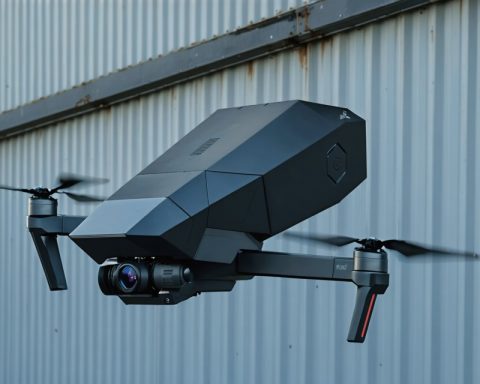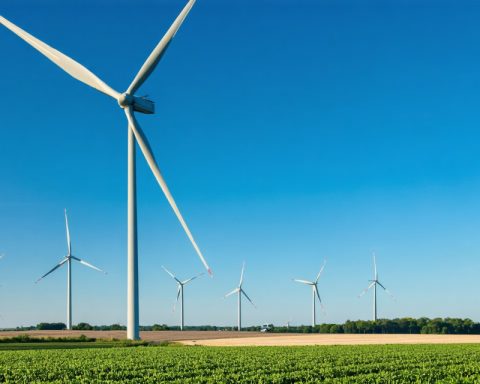- DroneShield Ltd secures a major $9.7 million contract with a Latin American military, showcasing its pioneering role in anti-drone technology.
- Advanced systems such as DroneSentry and DroneGun utilize AI and machine learning, enhancing threat detection and minimizing false alarms.
- The stock surged 13% post-deal, though market conditions remain volatile due to regulatory and ethical uncertainties.
- Ethical concerns, including privacy and airspace violations, are crucial for DroneShield’s continued growth and credibility.
- Future growth hinges on overcoming regulatory hurdles, sustainable practices, and technological competition.
Revolutionizing Drone Defense: DroneShield Ltd is making remarkable strides in the drone defense arena, recently landing a hefty $9.7 million deal with a Latin American military unit. This contract is a testament to the rapidly increasing global appetite for sophisticated anti-drone technologies as unauthorized drone incursions become more prevalent. DroneShield’s advanced systems, like DroneSentry and DroneGun, are at the forefront of this wave, integrating cutting-edge AI and machine learning to enhance threat detection accuracy and dramatically cut down on false alarms. These breakthroughs might just redefine the industry’s benchmarks.
Market Dynamics and Uncertainties: Despite DroneShield’s stock soaring by 13% post-announcement, market conditions remain unpredictable. Heightened investor caution stems from concerns over the company’s ability to maintain sustainable growth amidst regulatory and ethical uncertainties. While industry experts remain optimistic about DroneShield’s future, they emphasize the importance of addressing possible shifts in regulations and ethical controversies surrounding drone countermeasures.
Balancing Innovation with Ethical Responsibility: While DroneShield leads in deploying advanced AI systems to tackle security challenges, these technologies also spark debates about potential privacy infringements and sovereign airspace violations. Effectively addressing these ethical dilemmas is crucial for DroneShield’s expansion and trust-building efforts.
Future Considerations: The company’s path forward will be shaped by three main challenges: regulatory compliance, sustainable manufacturing practices, and maintaining competitive superiority amidst a tech-driven landscape. By strategically engaging with global regulatory bodies and focusing on sustainable innovations, DroneShield aims to stay ahead of the curve in this fast-evolving industry. For more insights, explore DroneShield’s official website.
Drone Defense Revolution: How DroneShield is Changing the Game
Pros and Cons of DroneShield’s Technologies
Pros:
1. Advanced AI Integration: DroneShield’s use of AI and machine learning significantly enhances threat detection accuracy, reducing false alarms and improving response times.
2. Comprehensive Tools: Products like DroneSentry and DroneGun provide a holistic approach to drone defense, offering both detection and mitigation capabilities.
3. Recent Financial Success: The $9.7 million contract with a Latin American military unit showcases the growing trust in their solutions and expands their market footprint.
Cons:
1. Regulatory Challenges: Navigating the complex landscape of regional and international drone regulations can be daunting and poses an ongoing challenge.
2. Ethical Concerns: Their technologies raise questions about privacy and sovereign airspace, which could affect adoption rates or lead to legal disputes.
3. Market Competition: With several players entering the anti-drone space, maintaining competitive differentiation is crucial for sustaining market leadership.
DroneShield’s Market Forecast and Trends
The market for anti-drone technologies is expected to experience significant growth over the next decade, spurred by increased drone activity and the need for security systems in critical sectors such as defense, infrastructure, and public spaces.
Key Trends:
– AI-Powered Solutions: The integration of AI will be a major trend, with companies striving to improve detection and responsiveness.
– Sustainability Emphasis: There is a growing demand for solutions that not only offer security but also adhere to environmental sustainability principles.
Predictions:
– DroneShield is likely to expand its product range to include more eco-friendly materials and energy-efficient operations, aligning with global sustainability goals.
Addressing Controversies: Ethical and Regulatory Considerations
How is DroneShield balancing innovation with ethical responsibility?
DroneShield is actively engaging with policymakers and ethical advisory bodies to ensure that its technologies adhere to privacy laws and ethical standards. The company is also investing in transparent communication strategies to alleviate public concerns over data usage and airspace sovereignty.
What are the main regulatory hurdles DroneShield faces?
The main challenges include keeping up with varying global regulations related to unmanned aerial vehicles (UAVs), ensuring compliance with privacy standards, and navigating international trade laws for technology export.
How can DroneShield maintain its competitive edge?
By continuously innovating with sustainable practices, collaborating with global regulatory authorities, and ensuring their AI technologies remain at the forefront of the industry, DroneShield can sustain its competitive edge.
For more information on DroneShield, explore their official website: DroneShield.









